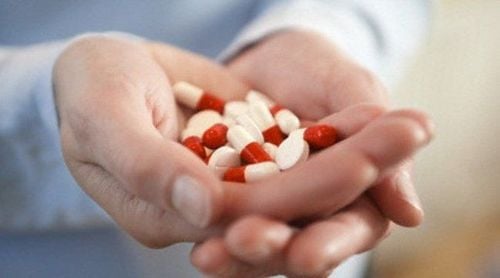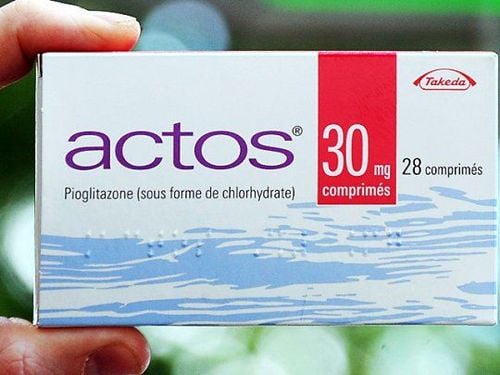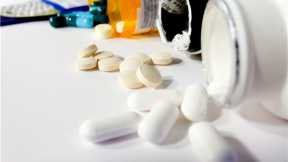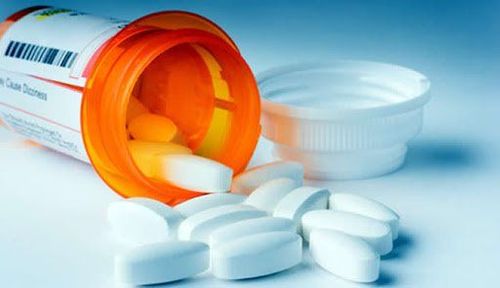This is an automatically translated article.
Diabetes is a common disease, common in the elderly. This is a group of people who are more at risk of developing diabetes-related complications such as hypoglycemia, kidney failure, and heart disease than younger people with diabetes. The treatment of diabetes in the elderly is also more difficult.
1. Diabetes in the elderly
Our body converts the food we eat into sugar, called glucose, to provide the body with energy. To use glucose for energy, our bodies need insulin, a hormone that helps glucose get into cells.
Diabetes (also called diabetes mellitus) is a chronic disease characterized by high blood sugar (blood sugar) levels due to the body's inability to produce enough insulin or to use insulin properly. both.
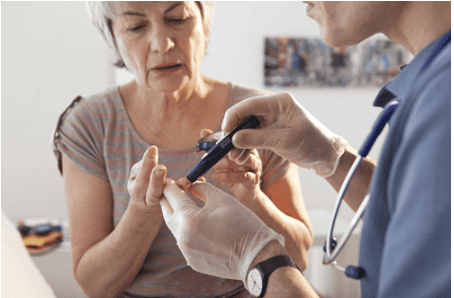
Tiểu đường là một trong những bệnh lý mạn tính phổ biến nhất ở người cao tuổi
Type 1 diabetes (formerly known as insulin-dependent diabetes or juvenile-onset diabetes) is often diagnosed guess in childhood. Type 2 diabetes (formerly known as non-insulin-dependent diabetes or adult-onset diabetes) is the most common type, usually diagnosed in adults over 45 years of age, although an increasing number of young people age is having type 2 diabetes. Gestational diabetes is a type of diabetes that occurs only during pregnancy. Type 2 diabetes is associated with an unhealthy lifestyle. The main risk factors for diabetes include: age, being overweight, genetic factors, and reduced mobility. The rate of type 2 diabetes increases steadily with age.
Type 2 diabetes is at high risk in people who:
Are over 45 years old and have high blood pressure; Are over 45 years old and overweight; Over 45 years old and have a family member with (ever had) diabetes; Over 55 years old; History of heart attack; Have heart disease; Have or have ever had higher than normal blood sugar levels; Have or have had high blood sugar during pregnancy (gestational diabetes); Having polycystic ovary syndrome and being overweight.
2. Characteristics of diabetes in the elderly
Many age-related changes influence the clinical presentation of diabetes. These changes can make it difficult to recognize and treat diabetes. Many studies show that at least half of elderly people with diabetes don't even know they have it.

Người già mắc bệnh tiểu đường thường khó nhận biết triệu chứng hơn so với người trẻ
An important problem for elderly people with diabetes is that, at times, symptoms may not be obvious:
Typical symptoms of diabetes, such as excessive urination and feeling sick thirst, which is often not as evident in the elderly as it is in younger people. In addition, symptoms of type 2 diabetes, such as feeling tired and lethargic, can often be mistaken as part of the normal aging process. Therefore, elderly people with diabetes may have no symptoms and go undiagnosed until visible lesions appear. Many older people also have other underlying medical conditions associated with diabetes, and this can complicate diabetes management. For example, high blood pressure or dyslipidemia can speed the progression of common diabetes complications, such as kidney problems, eye problems, and leg problems. and blood vessels. People with diabetes with high blood sugar are more susceptible to infections than people with normal blood sugar. Certain medications, herbs, and supplements can also have an impact on your blood glucose levels, so be sure to let your doctor know about your diabetes so he or she can recommend the right treatment. suitable for you. Elderly patients may experience impaired cognitive function, which becomes an obstacle to diabetes treatment. Elderly people are often in poor health and are more susceptible to diseases. This could mean that diabetes-related complications are more common and harder to manage. Exercise and dietary adjustments can be more difficult for the elderly
3. Complications of diabetes in the elderly
If diabetes in the elderly is not controlled, the accumulation of glucose in the blood can cause damage to nearly every major organ in the body, including kidney damage; damage to the arteries, which increases the risk of stroke and heart attack; eye damage, leading to decreased vision , blindness; erectile dysfunction (impotence) in men; and nerve damage, which can lead to injury and infection, and possibly even amputation.
Treating complications from diabetes in the elderly is difficult, but patients can control their blood sugar and help minimize the impact of diabetes in the future. Preventing long-term complications of diabetes is important.
4. Diabetes Tests to Take
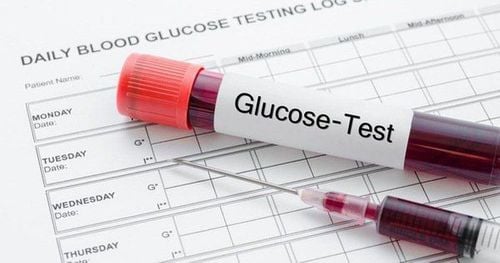
Xét nghiệm glucose huyết tương giúp chẩn đoán bệnh tiểu đường
Tests to help diagnose diabetes in the elderly include:
Random plasma glucose test: done at any time of day A1C test : done at any time of day; shows your average glucose level over the last 3 months Fasting plasma glucose test : performed when the patient has fasted for at least 8 hours Oral glucose tolerance test: performed after overnight fasting and then 2 hours after drinking a sugary beverage (this is not a routine test for type 2 diabetes).
5. Treatment of diabetes in the elderly
For the elderly with diabetes, blood sugar control can be accomplished with diet and exercise. Some patients need diabetes medication or insulin injections along with medications to control other conditions such as high blood pressure and high cholesterol. Some patients need both lifestyle changes and medication at the same time.
In addition, elderly people with diabetes need to see a specialist regularly for:
Regular blood tests to check if their diabetes is under control; Get regular eye exams to monitor diabetic eye complications Monitor your weight and help you lose weight if necessary Measure your blood pressure regularly and offer treatment for high blood pressure if present; Check the health of your feet for any signs of ulcers or foot infections, and control any diabetic foot problems if any. Have regular urine tests to check for any kidney problems (diabetic nephropathy); Prescribe oral hypoglycemic drugs (or insulin, if necessary), if lifestyle changes do not help you control your diabetes well.
6. What should the elderly do to control diabetes well and prevent diabetes complications?

Người mắc bệnh tiểu đường cần có chệ độ ăn lành mạnh để kiểm soát tốt bệnh tiểu đường
6.1 Well-controlled diabetes treatment in the elderly Monitor blood glucose levels: Very high glucose levels (hyperglycemia) or very low glucose levels (hypoglycemia) can pose health risks yours. The treating physician will make a plan for when the patient should have the glucose and A1C test done. If you are controlling your diabetes without taking insulin, you may not need to check your glucose as often. Choose a healthy diet: the foods in the daily diet affect blood sugar levels, so elderly people with diabetes should eat frugally, eat lots of green vegetables. Reduce starch, foods high in fat of animal origin. Replace with foods containing fats of plant origin such as beans, peanuts..., should limit foods that provide fast sugar such as cakes, candies, sweet fruits such as jackfruit, mango, pineapple.. .. Be physically active: Walking and other forms of daily exercise can help improve glucose levels in elderly people with diabetes. Take your medicine regularly: you should take your medicine as prescribed even if you feel better, tell your doctor about any side effects, or if you have trouble taking your medicine (difficulty swallowing). ). 6.2 Measures to help prevent complications of diabetes in the elderly Manage blood pressure by checking blood pressure regularly. Manage your cholesterol: At least once a year, get a blood test to check your cholesterol and fat levels. High levels can increase your risk of heart problems. Quit smoking: Smoking increases your risk for many health problems, including heart attack and stroke. Annual eye exam: Detecting and treating eye problems early can keep your eyes healthy. Check your kidney function periodically: Diabetes can affect your kidneys Care for your teeth and gums: Brush and floss your teeth daily. Check your teeth and gums twice a year to avoid serious problems. Protect your skin: Keep your skin clean, take good care of minor wounds and bruises to prevent infection. Check your feet regularly: Take the time to check your feet every day, if there are any sores, blisters, broken skin, infection or callus buildup, see your doctor right away. In summary, diabetes in the elderly is a fairly common disease, if not treated promptly can put patients at risk of serious complications, but this risk can be greatly improved. with appropriate medical treatment and lifestyle modifications.
For early detection of diabetes in the elderly and better control of the disease, patients should check, test, and screen for diabetes regularly. Currently, Vinmec International General Hospital is providing a Diabetes Screening Package to help patients detect the disease early and monitor the effectiveness of the treatment regimen.
With this package, patients will receive:
Endocrine CK Exam (by appointment) Oral Tolerance Test (for customers with suspicious fasting blood sugar results) Glucose Measurement HbA1c Measurement Acidity Uric Determination of Cholesterol Determination of HDL-C (High density lipoprotein Cholesterol) Determination of LDL-C (Low density lipoprotein Cholesterol) Determination of Triglycerides Determination of Urea Determination of Creatinine Measurement of AST Activity (GOT) Measurement of ALT Activity (GPT) GGT (Gama Glutamyl Transferase) activity
Please dial HOTLINE for more information or register for an appointment HERE. Download MyVinmec app to make appointments faster and to manage your bookings easily.




